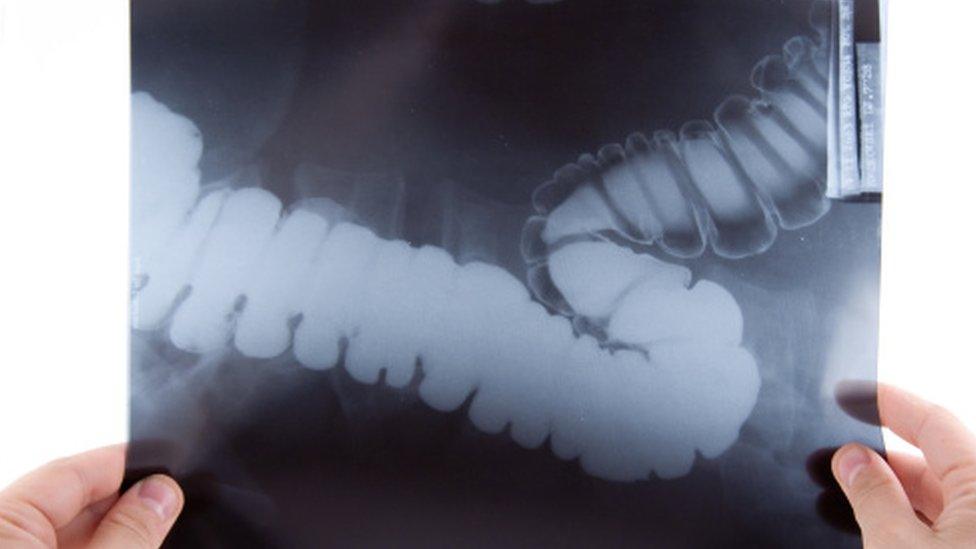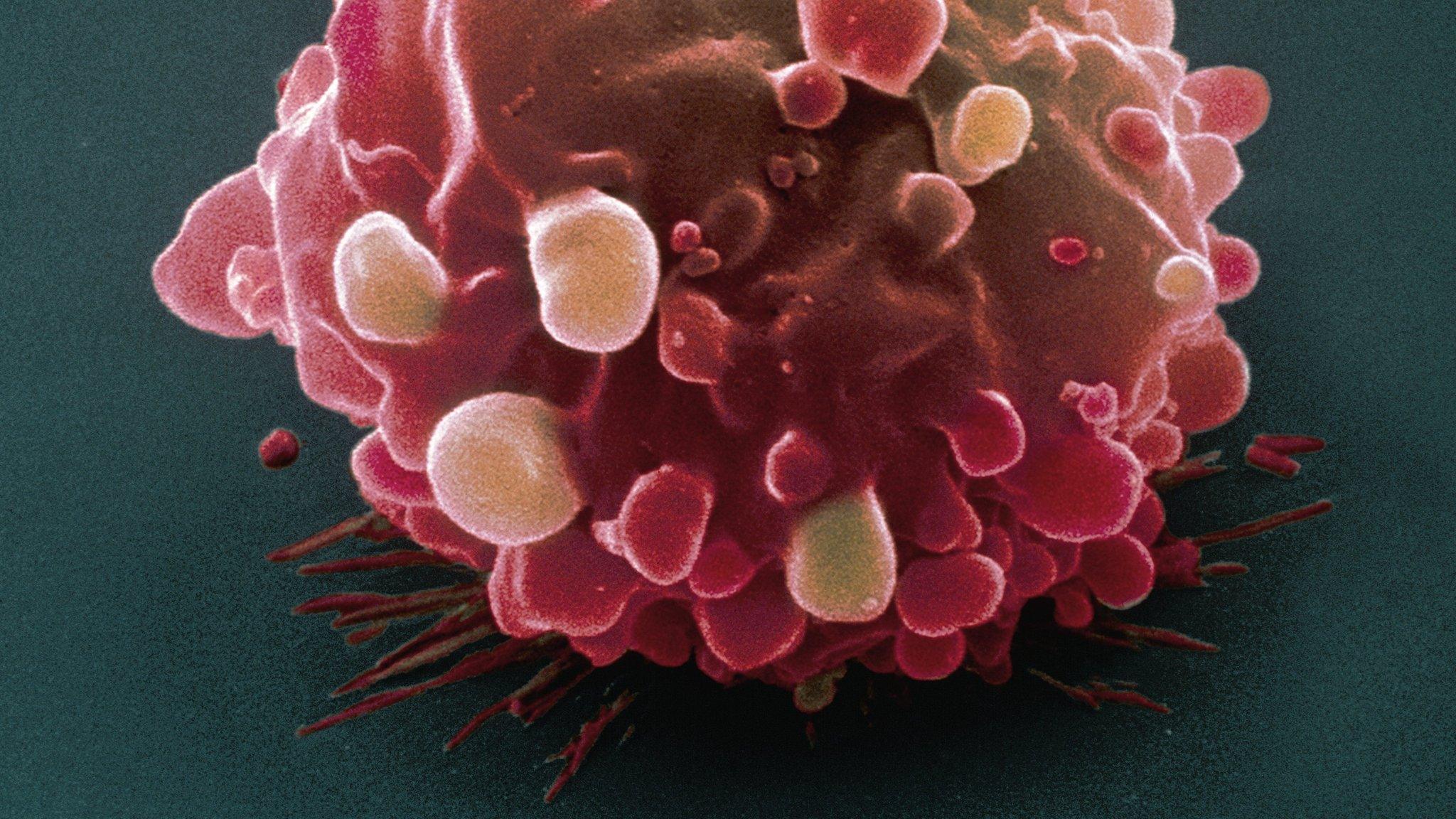Bowel cancer is four distinct diseases
- Published

Bowel cancer is four distinct diseases, each with a different prognosis, scientists have discovered.
Armed with this new knowledge, doctors might better determine which patients need the most aggressive treatment, the Institute of Cancer Research team say.
They looked at laboratory and clinical data from more than 3,000 patients with bowel cancer to see if they could better classify the disease.
Nearly all of the tumours could be sorted into the four groups.
The groups focus on the genes a tumour contains, rather than just the type of bowel tissue that it affects or how far it has spread - although those factors are important too.
Grouped by genes
Cancers that fit the four consensus molecular subtypes (CMS1, CMS2, CMS3 and CMS4) share genes that dictate their behaviour and might also make them more or less vulnerable to certain treatments, Nature Medicine, external reports.
Patients with CMS4 tend to have the worst prognosis and might need more extensive treatment, for example, while those with CMS2 have much better survival rates, even if the cancer returns.

Researcher Dr Anguraj Sadanandam said the discovery was important for knowing how best to treat patients.
"The next step is to match existing therapies with these groups so that we can begin to personalise treatment.
"Some of these patients might be undergoing chemotherapy when they do not need it and could be spared it."
Lucy Holmes, Cancer Research UK's science information manager, said: "Each patient's cancer is unique and we need to tailor treatments and move away from a 'one size fits all' approach. Studies like this showing different types of a certain cancer are helping us get there."
- Published21 September 2015
